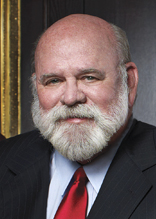By Mark Curriden, JD
Senior Writer for The Texas Lawbook
A Dallas County jury has awarded $10.6 million to a North Dallas neurologist who claims that his partners, including a long-time physician friend, in a specialized medical center misappropriated funds and intentionally deceived him about the finances of their operations.
The 12-person jury, following more than two weeks of evidence and arguments, found late Tuesday that Dr. Michael Taba and managing partner Mehrdad Ghani owed Dr. Erwin Cruz $2.9 million in actual damages as the result of negligence and fraud. The jury separately awarded Cruz more than $7.7 million in punitive damages.
The jury’s verdict is attracting significant attention in the legal and medical communities because it could be an indication of how juries could decide scores of similar lawsuits pending across Texas.
Legal experts say that during the past 15 years, physicians who wanted more profit from their practices than simply their salaries from hospitals created several hundred specialized medical centers in Texas. Groups of specialists in fields such as cardiology, neurology, radiology and urology, joined together to create highly profitable treatment clinics that offer day surgeries, medical testing and other medical services offered at hospitals.
But now, business disputes over profit sharing, management decisions, contractual agreements, investment costs and retirement plans are developing in those partnerships. As a result, doctors, who so frequently complain about too many lawsuits, are increasingly suing each and their own management teams.
“Dr. Cruz, like so many of the doctors involved in these kind of partnerships, was not a businessman,” says prominent business trial lawyer Frank Branson, who represented the plaintiff in the case.

Branson, who is a 1969 graduate of SMU Dedman Law School, said that Dr. Cruz and Dr. Taba were long-time friends and opened two North Texas diagnostic medical imagining centers in 2002 doing MRIs, CT scans and other services. The doctors partnered with Ghani, who was the financial and operational administrator.
Dr. Cruz claims that the defendants made bad business decisions, including misleading him about the companies finances, in order to start a completing center. He also says that the pair secretly voted themselves additional compensation.
A lawyer for Taba and Ghani declined comment, but it is routine for the losing party to ask the trial judge to set aside the verdict for various legal and factual reasons.
Other key lawyers leading the plaintiff’s team were Eric Stahl, Debbie Branson, Thomas Farmer, Dudley Branson and John Burkhead of the Law Offices of Frank Branson.
Business litigators said Wednesday that the jury’s verdict in the Cruz says will certainly be studied by the lawyers in scores of other pending cases in which doctors are in business disputes with each other over their specialty clinics.
“Many of these doctors enter into complex business transactions that are either incomplete or not well thought out,” says Dallas business trial lawyer Michael Lynn, whose firm Lynn Tillotson Pinker Cox is handling a handful of these kind of disputes.
Lynn, who is also a SMU Dedman Law School alum, said that the business disputes between doctors involved in these specialty care centers ranges from declining revenues from government agencies and investment costs in new technology to disagreements when senior physicians decide to retire and junior doctors deal with transitional issues.
“We are talking about doctors who are extraordinarily bright and extremely well-educated and believe they can learn any subjects,” says Lynn. “So they over-estimate their understanding or abilities when it comes to some of these kind of business decisions.”
Mac Stewart, a health law expert at Stewart Dugger & Dean, agrees that these kinds of business disputes between physicians are only going to increase in the months and years ahead.
“Twenty-five years ago, nobody had these kinds of business arrangements, so there was no such litigation,” says Stewart, a Texas Tech Law School alum.
Stewart says that the key legal disputes he sees are the result of poorly drafted documents created when the partnership was formed several years earlier and bad decision-making.
“Most of these disputes could be avoided but most doctors refuse to get a lawyer involved early to help them fix the problems,” he says. “Imagine that, doctors don’t like or trust lawyers.
PLEASE NOTE: Content of The Texas Lawbook is controlled and protected by specific licensing agreements with our subscribers and under federal copyright laws. Any distribution of this content without the consent of The Texas Lawbook is prohibited.
